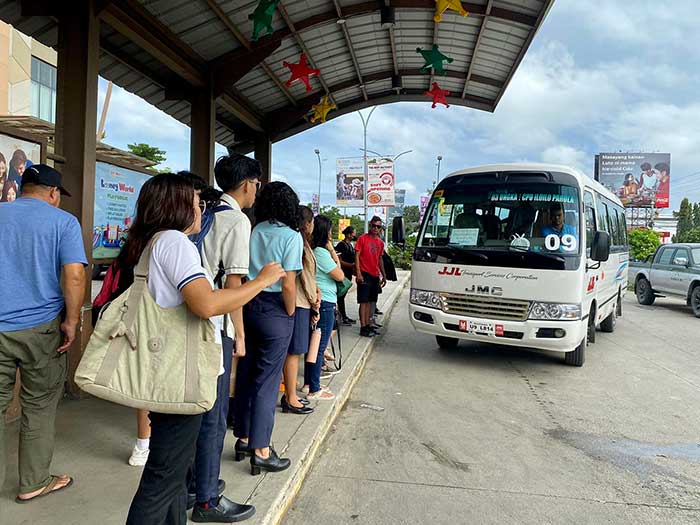
By Gerome Dalipe IV
Several transport and cause-oriented groups have petitioned before the Supreme Court to stop the government from implementing the Public Utility Vehicle Modernization Program (PUMP).
The “No to PUV Phaseout Coalition” filed the Petition for Certiorari and Prohibition before the High Court against the Department of Transportation (DOTr) and Land Transportation Franchising and Regulatory Board (LTFRB), among other respondents.
Essentially, the petition assails the validity of Department Order 2017-011 dated June 19, 2017, and was issued by the Department of Transportation (DOTr).
The department order, which is known as the Omnibus Franchising Guideline, provides the planning and identification of public road transportation services and franchise issuances under the PUV modernization program.
Will the petition prosper?
In the case of Araullo versus Aquino III, former Chief Justice Lucas P. Bersamin stressed the requisites in availing of legal remedies such as the petitions for certiorari and prohibition.
The High Court said that it will not entertain questions involving the constitutionality or validity of a law or governmental act unless the requisites for judicial inquiry are present.
First, there must be an actual case or controversy calling for the exercise of judicial power. Second, the person challenging the act must have the standing to question the validity of the subject act or issuance.
Third, the question of constitutionality must be raised at the earliest opportunity. Lastly, the issue of constitutionality must be the very lis mota of the case, or the legal issue or controversy.
“By grave abuse of discretion is meant such capricious and whimsical exercise of judgment as is equivalent to lack of jurisdiction. Mere abuse of discretion is not enough,” read Justice Bersamin ruling.
The petition questioned the constitutional and statutory validity of the orders and memorandum circular, emphasizing that the measures ascribe grave abuse of discretion amounting to lack or excess of jurisdiction on the part of the DOTr and LTFRB.
“No legislation was passed to support the so-called PUV ‘modernization’ program or its various facets including mandatory consolidation,” the petition read.
The petitioners argued that the issuances of the two agencies violated the constitutional rights of the drivers and operators since joining a cooperative is voluntary under the Republic Act No. 9520 or the Philippine Cooperative Code of 2008.
The petitioners emphasized that DOTr and LTFRB’s push for consolidation are only administrative orders and not a law which they said are beyond the authority of the said agencies.
The High Court, through Justice Bersamin, stressed that grave abuse of discretion exists when “the power is exercised in an arbitrary or despotic manner because of passion or personal hostility, and must be so patent and so gross as to amount to an evasion of a positive duty or to a virtual refusal to perform the duty, enjoined or to act at all in contemplation of law.”
Thus, the failure of the petitioner to establish grave abuse of discretion may result in the dismissal of the petition.
Although there is a separation of powers among three branches of government, the 1987 Constitution grants the High Court to adjudicate matters raised in the petition.
The Constitution also emphasizes the judicial department’s duty and power to strike down grave abuse of discretion on the part of any branch or instrumentality of government including Congress.
Former Chief Justice Roberto Concepcion also explained that “the judiciary is the final arbiter on the question of whether or not a branch of government or any of its officials has acted without jurisdiction or over jurisdiction or so capriciously, as to constitute an abuse of discretion amounting to excess of jurisdiction. This is not only a judicial power but a duty to pass judgment on matters of this nature.”
Various transport groups in the country are protesting against the PUV modernization program, which was rolled out by the DOTr.
The DOTr launched its modernization program in June 2018, which mandates the phaseout of PUVs aged 15 years or older.
The modernization program is a flagship, non-infrastructure program of the Duterte administration that envisions a restructured, modern, well-managed, and environmentally sustainable transport sector.
Under the program, drivers and operators are promised stable, sufficient, and dignified livelihoods while commuters get to their destinations quickly, safely, and comfortably.
The PUMP is not merely a vehicle modernization program, the DOTr said. It is a comprehensive system reform that will entirely change the public land transportation industry.
The agency also said the program features regulatory reform and sets new guidelines for the issuance of franchises for road-based public transport services.
Under the program, the local government units are empowered to draft their route planning considering they are more versed in the terrain and passenger demand within their respective territorial jurisdiction.
The LGUs are also required to submit their own Local Public Transport Plan (LPTRP) as a prerequisite for the opening of PUV franchises within their jurisdiction.
Route rationalization studies will also be conducted to determine the appropriate model, quantity, and service characteristics of the public transport service in each corridor which will make the routes more responsive to passenger demand and ensure that the hierarchy of roads and modes of transportation are followed.




















